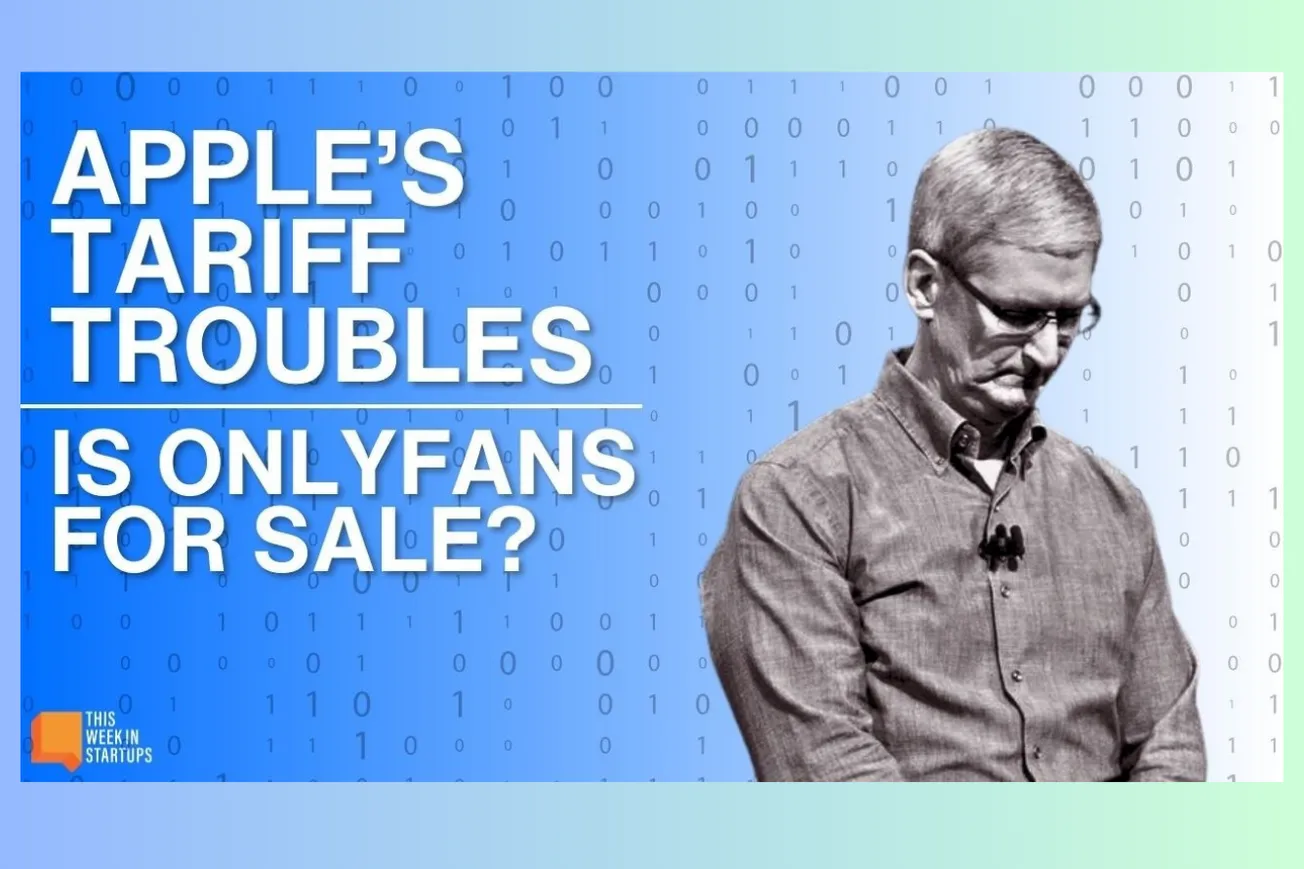Table of Contents
Apple’s intensifying exposure to global tariffs, Anthropic’s frontier push with Claude 3.5 Sonnet, and a new wave of next-gen startups from Founder Friday show how global forces, AI acceleration, and behavioral tech are shaping the future of industry.
Key Takeaways
- Apple faces escalating operational risk from U.S.-China trade tensions, reviving questions about supply chain diversification and geopolitical balancing.
- Anthropic’s release of Claude 3.5 Sonnet elevates the competition in enterprise AI with faster, more context-aware models suited for extended workflows.
- Founder Friday closes its season with a spotlight on five startups using AI and new UX models to tackle problems in mental health, digital memory, collaborative gaming, adaptive software, and event planning.
- These shifts reflect an evolving global tech order where economic policy, AI infrastructure, and founder-led innovation converge to define the decade ahead.
Apple’s Tariff Turbulence: Policy Meets Production
- With the Biden administration rolling out new tariffs on $18 billion worth of Chinese goods—targeting critical technologies and supply components—Apple finds itself on unstable footing despite not being directly named in the legislation.
- Apple’s hardware ecosystem remains deeply interwoven with Chinese manufacturing. Over 90% of iPhones, iPads, and MacBooks are assembled by partners like Foxconn and Pegatron across vast industrial complexes in Zhengzhou and Shenzhen.
- These tariffs escalate cost and sourcing concerns. If upstream parts like chips or batteries incur duties, Apple could face margin compression unless it renegotiates supplier contracts or absorbs costs.
- Already under pressure from investors to mitigate supply chain vulnerabilities, Apple has been expanding production into India—where it now manufactures iPhone 14 and 15 models—and experimenting with component assembly in Vietnam.
- Yet diversification isn’t simple. India’s infrastructure and workforce scale still lag China’s precision assembly capabilities, while Vietnamese operations remain small in scope.
- Political friction is intensifying: U.S. lawmakers are pushing Apple to reduce dependence on Chinese labor, while Chinese consumers and regulators remain vital to Apple’s global revenue.
- Apple must now juggle investor expectations, geopolitical signals, and operational feasibility—a balancing act that could shape its hardware strategy for years to come.
Anthropic’s Claude 3.5 Sonnet: AI Gets Sharper, Smarter, and More Strategic
- Claude 3.5 Sonnet is Anthropic’s latest installment in its Claude family—a mid-range model that aims to deliver enterprise-grade performance without the latency of larger models.
- It builds on Claude 3’s multi-turn coherence and document analysis capabilities, introducing persistent memory for cross-session continuity. This opens the door for more agent-like behavior, including customer support bots and personal research assistants.
- Benchmark comparisons show Claude 3.5 outperforming GPT-4 in summarization, information retrieval, and structured content formatting. Notably, it produces cleaner outputs with fewer hallucinations and tighter focus.
- Claude 3.5 is tailored for businesses. It can generate product briefs, legal summaries, technical specs, and spreadsheet formulas with low error rates and highly readable formatting.
- Anthropic’s release cadence reflects a broader maturity shift: it’s no longer just racing for breakthroughs but optimizing for usability, trust, and performance integration.
- The Claude ecosystem now includes Pro subscriptions, API access for developers, and white-labeled versions for enterprise partners.
- This isn’t just a smarter model—it’s infrastructure for AI-native work. Anthropic is betting that the next wave of competition will be won not by raw power, but by embedding AI into the muscle memory of daily workflows.
Founder Friday Finale: New Frontiers in Tech Startups
- The last Founder Friday episode of the season puts a spotlight on startups pushing the envelope in both emotional design and adaptive technology.
- One startup is pioneering asynchronous therapy with AI-guided prompts, mood tracking, and natural language journaling. It aims to reduce therapy waitlists while empowering users to self-regulate with clinical support.
- Another company is designing an immersive archive experience—allowing families to build multimedia timelines of ancestry, heritage, and key life milestones with voice recordings, video, and digital heirlooms.
- A third startup blends social gameplay with cognitive puzzles, offering multiplayer escape-room experiences designed for both entertainment and brain training. Users can compete, collaborate, and create custom logic levels.
- One stealth venture is developing a cross-platform ambient OS: software that senses location, intent, and habits to adapt apps, lighting, or media settings—without user intervention.
- A fifth company is building a SaaS platform tailored to freelance event coordinators, using AI to automate quotes, vendor matchmaking, timeline planning, and budget reconciliation in real time.
- These startups are not just writing code—they’re responding to deep emotional, logistical, and attention-related gaps in everyday life. The goal is not utility alone, but delight, memory, and flow.
From macroeconomic policy to frontier AI releases and the resurgence of emotionally intelligent software, this week captures the tectonic forces reshaping technology’s future. The throughline: adaptability wins. Whether it’s Apple shifting its hardware playbook, Anthropic refining large-scale models, or founders reimagining emotional infrastructure, the next wave belongs to those who build systems that feel inevitable.





